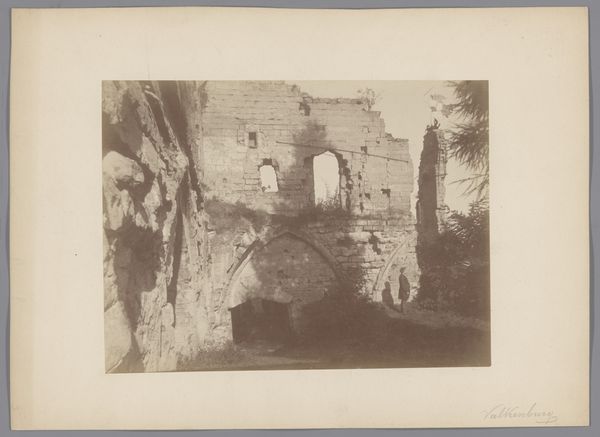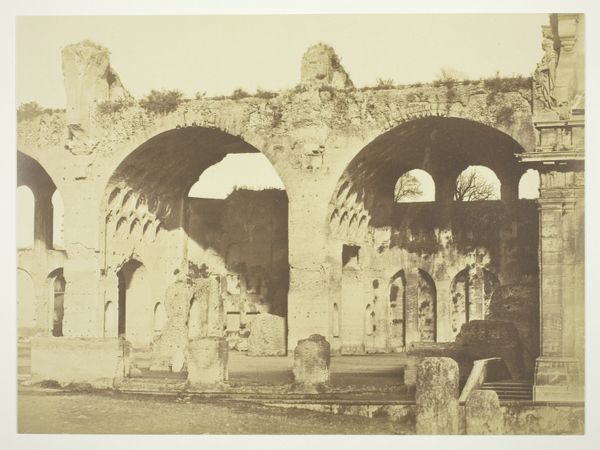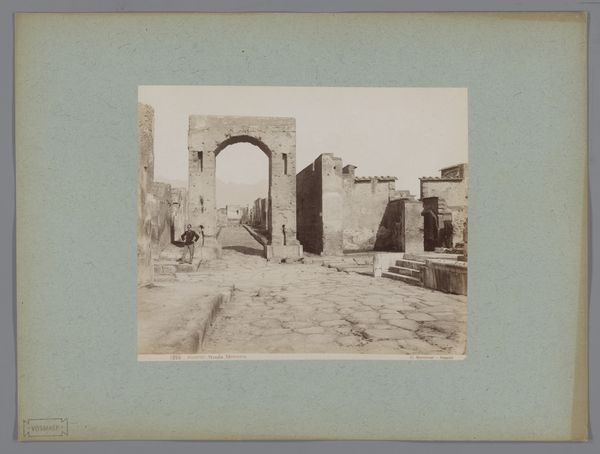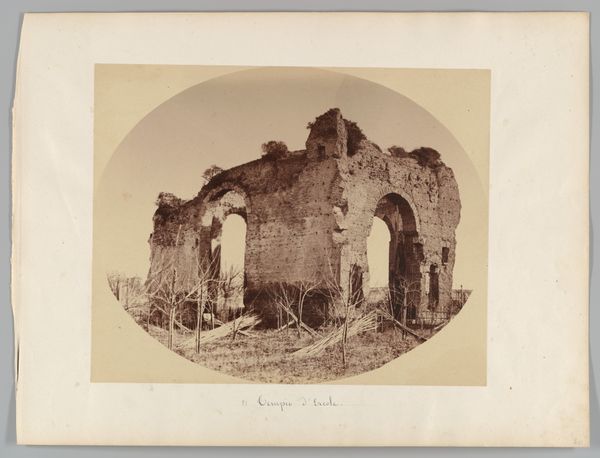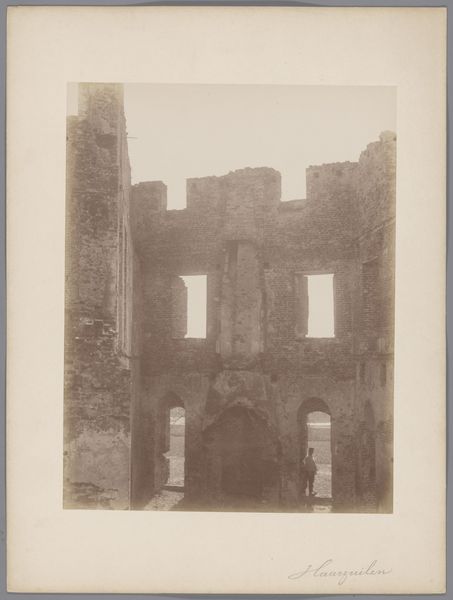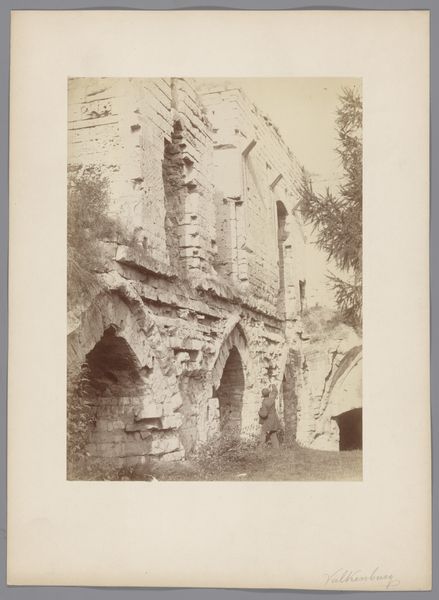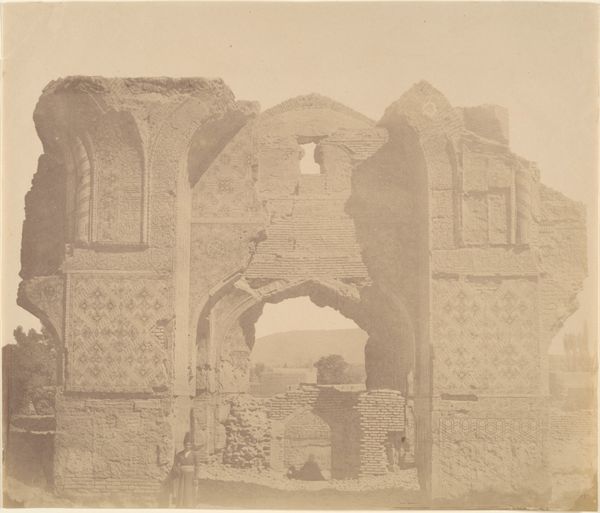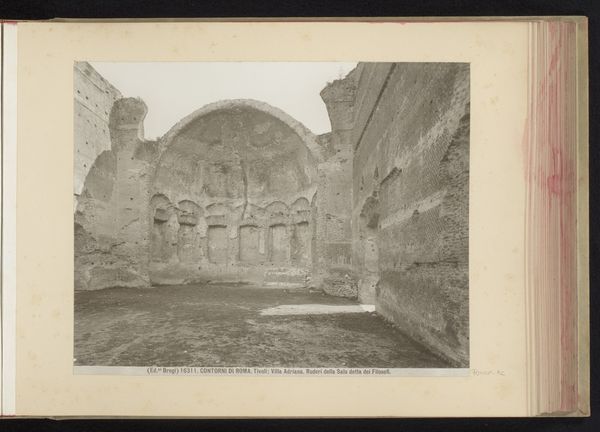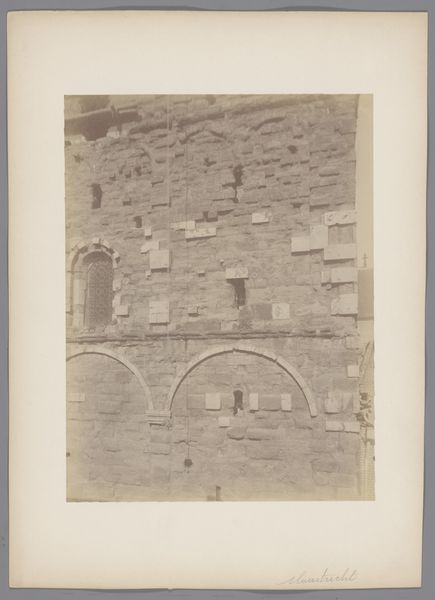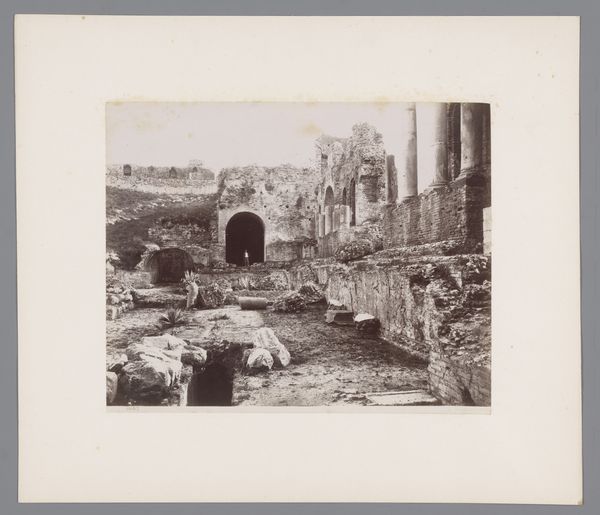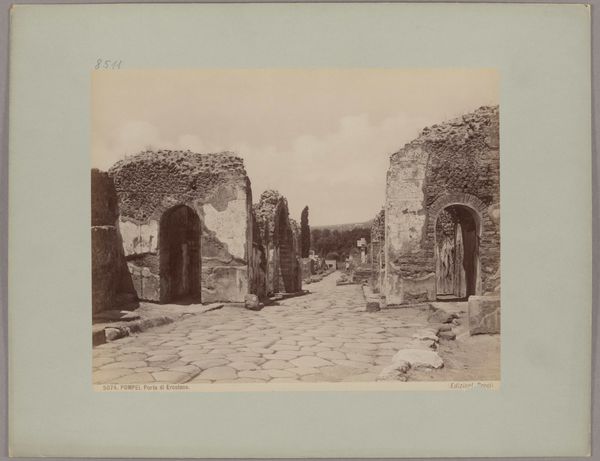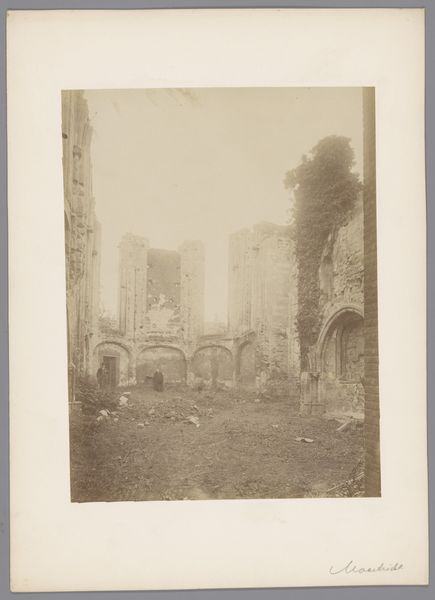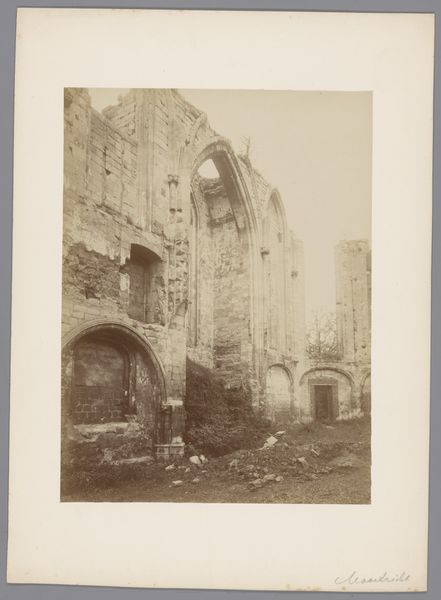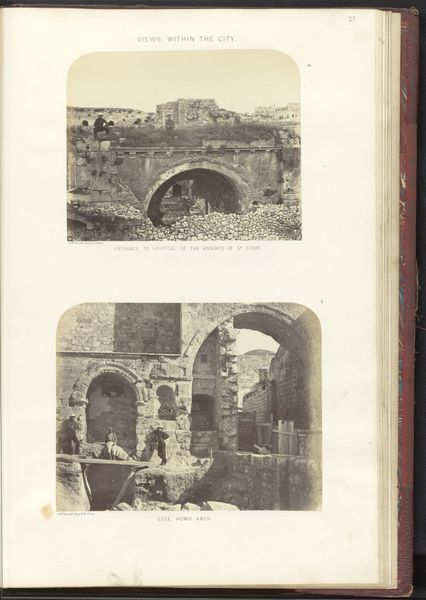
photography, gelatin-silver-print, architecture
#
aged paper
#
toned paper
#
muted colour palette
#
ink paper printed
#
landscape
#
white palette
#
photography
#
romanesque
#
ancient-mediterranean
#
gelatin-silver-print
#
architecture
Dimensions: height 320 mm, width 479 mm
Copyright: Rijks Museum: Open Domain
Editor: This photograph, titled "Thermen van Caracalla, Rome," captured by Giorgio Sommer between 1857 and 1914, is really striking. It feels like looking at a forgotten world, rendered in these muted tones. How do you read this piece? Curator: This photograph presents an interesting intersection of art, history, and evolving societal values. The very act of photographing the Baths of Caracalla during this period reflects a growing interest in documenting and preserving the relics of ancient civilizations, but consider for whom. Editor: So, it's not just about art for art's sake? Curator: Precisely. These images circulated widely, feeding a European fascination with classical grandeur while reinforcing colonial power dynamics. Photography became a tool for cultural appropriation, turning the Roman past into a spectacle consumed by Western audiences, often ignoring the complexities and living cultures of the space. Editor: That's a perspective I hadn't fully considered. So, the image itself is less about objective documentation and more about a subjective, politically charged interpretation? Curator: Indeed. Think about the selection of this site. The baths, originally a place of public leisure, become ruins—symbols of a lost empire, ripe for romanticizing by a new, dominant culture. What do you think that positioning does? Editor: It highlights the West as inheritors and even superior to ancient cultures, almost justifying their presence and interventions in places like Rome. That's powerful, and honestly, quite uncomfortable to unpack. Curator: It's meant to be, I think. Historical context shifts our perception of this image. Thank you, it has me thinking about its accessibility now. Editor: Exactly! Now I will carry that new perspective with me!
Comments
No comments
Be the first to comment and join the conversation on the ultimate creative platform.
